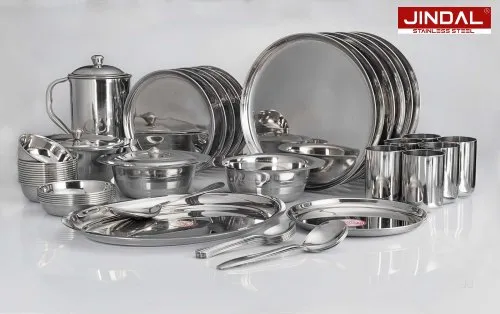Jindal Stainless, a manufacturer of stainless steel products for industries like transportation and construction, is actively addressing its Scope 3 emissions and preparing for the European Union’s Cross Border Adjustment Mechanism (CBAM). The company’s managing director, Abhyuday Jindal, mentioned their readiness, citing investments in renewable and hydrogen power. The company, already 95% reliant on scrap, is focusing on Scope 3 emissions by training and guiding suppliers in environmentally responsible practices.

Having recently expanded its capacity to 2.9 million tonnes, Jindal Stainless aims for a 20-25% production increase this fiscal year, targeting a substantial share in India’s steel consumption targets. Stainless steel has found application beyond utensils, now being used in railways, automotive, bridges, airports, and more.
Abhyuday Jindal anticipates growth in both the domestic market and exports in the latter half of the fiscal year. However, he raises concern about China’s substantial dumping of subsidized and substandard stainless steel in India, urging the government to impose anti-dumping duties to safeguard the domestic industry.
Despite the steel ministry’s engagement, no positive response has been received yet. This has led to a 318% increase in Indian imports of Chinese stainless steel over the past two years, impacting the local industry’s capacity utilization, which stands below 50%.
Jindal Stainless continues to play a critical role in shaping a sustainable and dynamic future. As one delve deeper into Jindal Stainless’s endeavors, one can explore its initiatives, aspirations, and contributions that extend beyond stainless steel manufacturing, resonating as a symbol of sustainable growth and innovation in the industrial realm.
